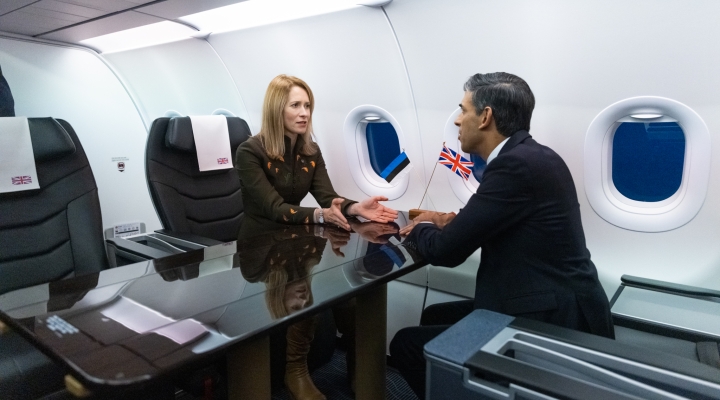“I expressed my gratitude to the Prime Minister of the UK for the presence of their troops in Estonia,” said Prime Minister Kallas after the meeting. “The role of the UK in ensuring Estonia’s security and strengthening NATO’s defence posture on the eastern flank of the Alliance is invaluable. We’ve been rapidly implementing the decisions adopted at the NATO Madrid Summit. The decision of the UK to deploy a brigade to rapidly strengthen Estonia in the event of a crisis is a perfect example. We’re also working closely together to increase Estonia’s defence capabilities, such as building an Estonian division, conducting joint exercises and increasing our reception capacity,” noted Prime Minister Kallas.
Russia’s aggression against Ukraine and support for Ukraine were also discussed at the meeting. “Estonia and the United Kingdom have been among the most active supporters of Ukraine and there’s no question here of whether this should continue – until Ukraine hasn’t liberated its territory, we’ve not done enough. Ukraine has proven itself on the battlefield and our full support will help Ukraine win the war faster and establish peace,” said Kallas. “We’re in a long-term confrontation – Russia’s imperialist goals to conquer Ukraine, to re-establish the era of influence spheres in Europe and to weaken NATO have not changed,” Prime Minister Kallas noted.
In Tallinn, the prime ministers signed a joint memorandum of understanding on technology partnership, which foresees closer digital and technology cooperation between the two countries in the fields of healthcare, education and e-governance. “The guiding ideas of this cooperation are also to create and strengthen links with allies and reduce dangerous addictions. Technology opens up new opportunities for us in terms of increasing prosperity, strengthening defence and protecting democracy and common values,” said Prime Minister Kallas, adding that the memorandum signed today confirms the very close partnership between the two countries in this field. For example, Estonia and the United Kingdom have been active leaders in setting up NATO’s innovation accelerator.
Photos: https://flic.kr/s/aHBqjAjJib
